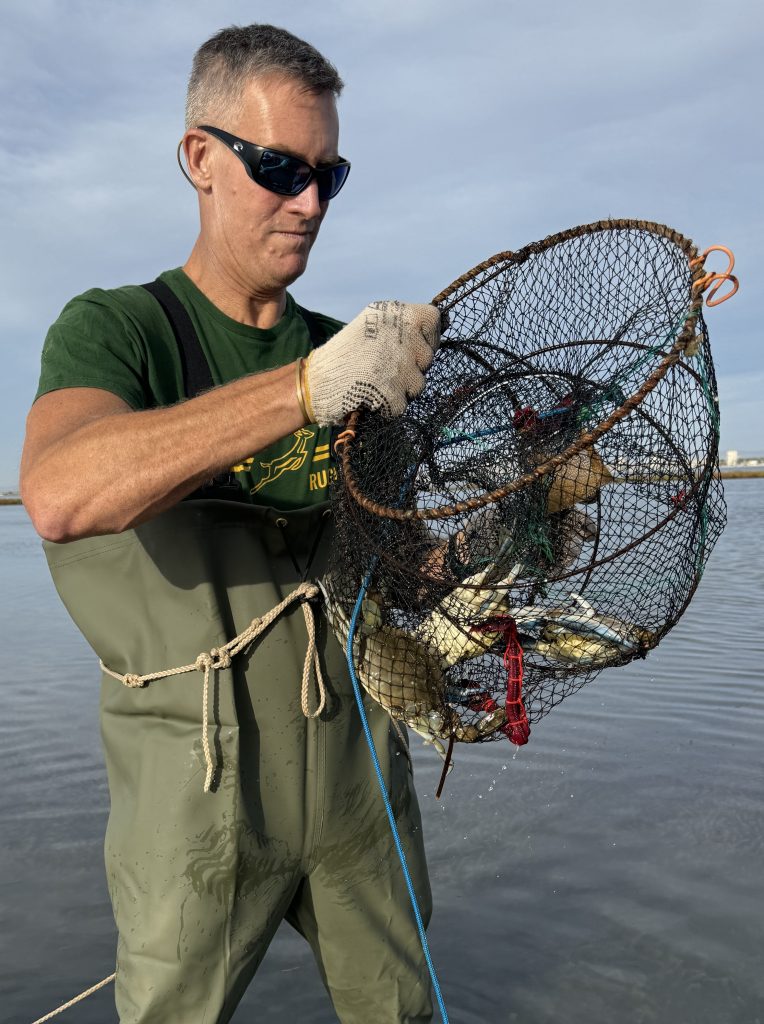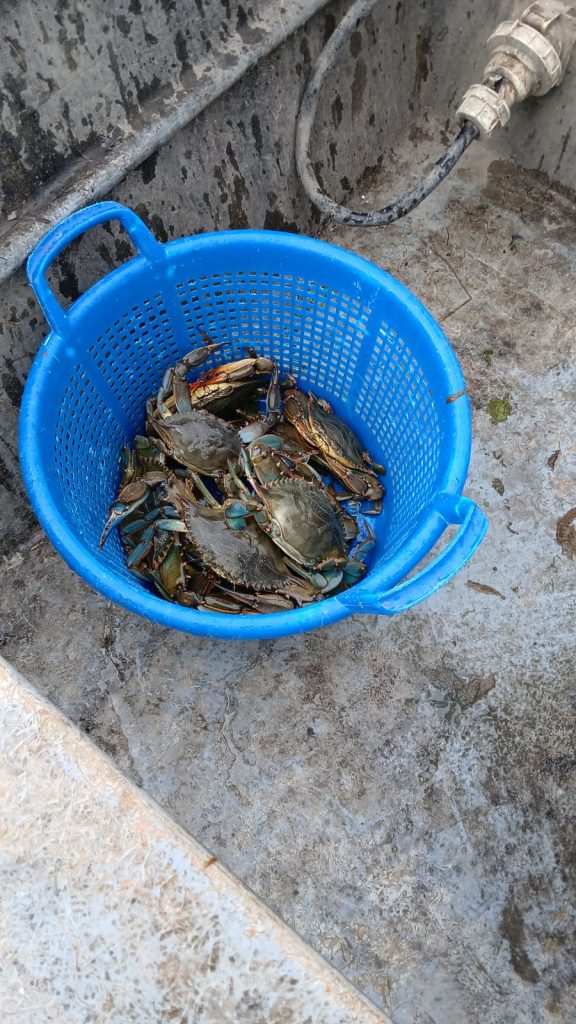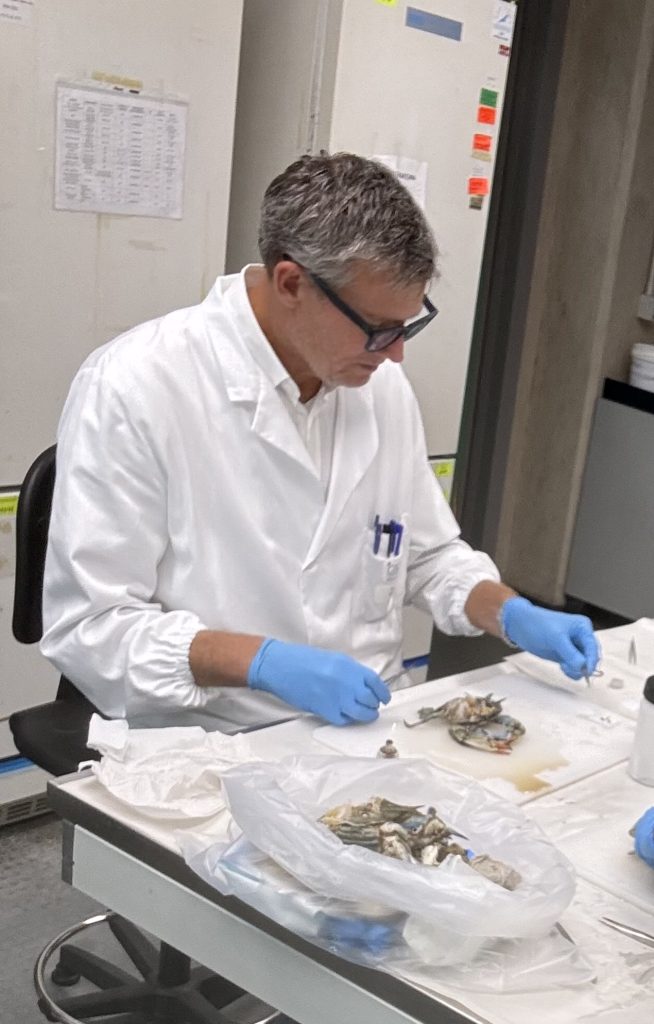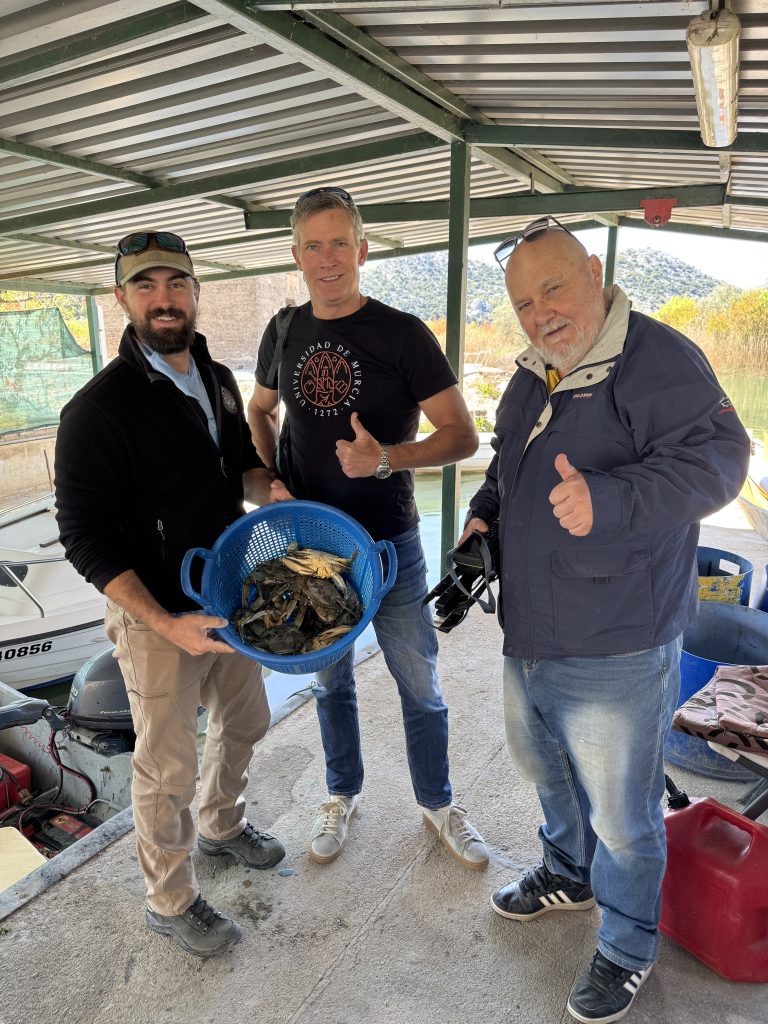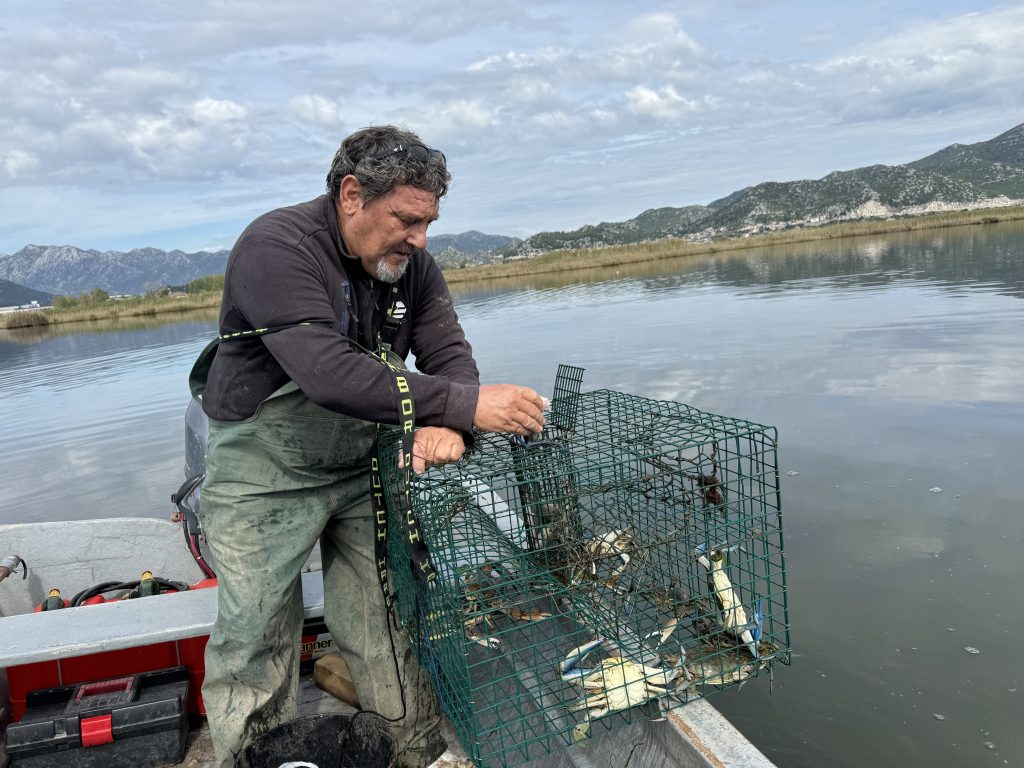
Prof. Donald C. Behringer, PhD, a distinguished scientist from the School of Forest, Fisheries, and Geomatics Sciences at the University of Florida, is currently spending his sabbatical at the Department of applied ecology at the University of Dubrovnik. His visit is supported by the Invasion Science Research Institute, which facilitates the exchange of students, faculty, and researchers.
Professor Behringer, author of more than 80 scientific publications and holder of an H-index of 30, specializes in the ecology and epidemiology of marine diseases, as well as the resilience and recovery of marine communities under human and natural stressors. His current research focuses on the blue crab (Callinectes sapidus)—an invasive species in the Mediterranean Sea, although native to the Atlantic Ocean.
In an interview with UNIDU TV, professor Behringer explained the importance of his research and his stay in Dubrovnik: ‘I’ve studied blue crabs in their native range, including Florida, but in the Mediterranean, they are considered an invasive species. The knowledge we’ve gained about blue crabs and their parasites is now being applied to understand their impact on new ecosystems. Croatia is an ideal location for this research.’
Blue crabs were first recorded in the Mediterranean in the 1940s, but their population has increased significantly over the past two decades, leading to substantial ecological changes.
‘In their native habitat, their biggest threats are human activities and overfishing. Since they are invasive in the Mediterranean, there is growing interest in developing effective strategies for population control,’ Behringer added.
During his stay in Dubrovnik, prof. Behringer is leading an international research initiative involving the collection of blue crab samples in Croatia, Portugal, Spain, Italy, and Albania. In collaboration with the Mariculture laboratory in Bistrina, experimental studies are also being conducted to enhance understanding and improve control strategies for invasive species.
In the interview, he also discussed the impacts of climate change on marine ecosystems, with particular emphasis on ocean acidification and rising CO₂ levels. He highlighted the importance of international regulations, such as ballast water management, in preventing the spread of invasive species.
Professor Behringer also offered valuable advice to future marine science students and emphasized the importance of international collaboration initiatives like this one.
Collaborations with renowned scientists such as prof. Behringer and connections with leading scientific institutions across the Mediterranean greatly enhance the international visibility of the University of Dubrovnik. These partnerships provide our researchers with opportunities to establish new collaborations, exchange knowledge, and strengthen research capacities.
The University of Dubrovnik has maintained a longstanding partnership with the University of Florida through a Memorandum of understanding and the Erasmus+ KA171 programme. Currently, two students from the University of Florida are participating in an exchange programme at our university, and two more faculty members from UF are expected to arrive by the end of the semester—further underscoring the commitment of both institutions to strengthening international cooperation and academic exchange.
Last year, the Faculty of media and public relations at the University of Dubrovnik hosted several distinguished professors from UF—Dr. Benjamin Johnson, Christine Bucan, and Dr. Andrew Selepak—continuing a successful and ongoing collaboration.
